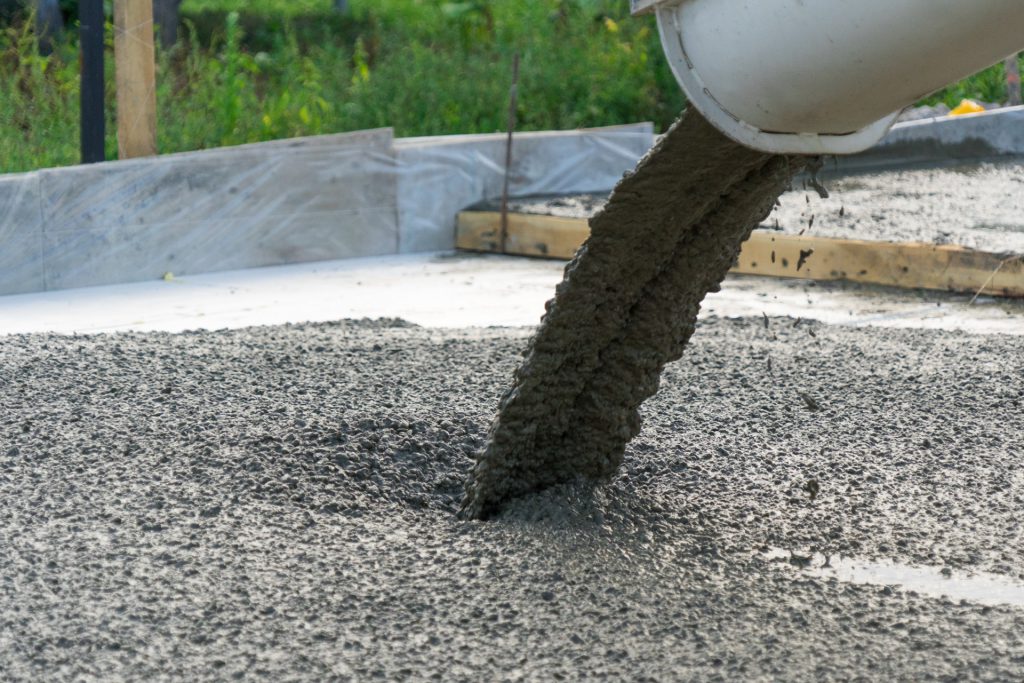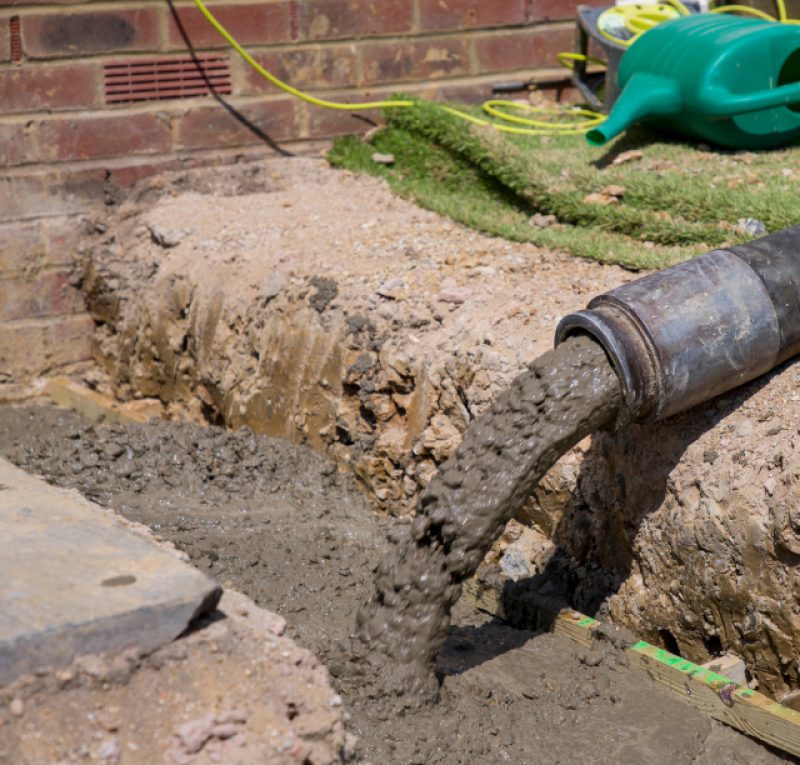The types of concrete and their applications
A successful DIY or construction project depends on the strength and properties of the materials you use. Chances are, you will require a reliable supply of concrete during your project, and so you need to make sure you choose the best type of concrete for the job.
In this article, we’ll take you through the types of concrete and their uses so you can make the best decision.

What are the types of concrete?
All concrete is mixed to offer different levels of strength and suit different applications. Let’s take a look at the main sorts of concrete available to you and their traits.
Please note, the ‘C’ placed at the front of each concrete number indicates the compressive strength of that concrete type. The higher the strength of the concrete, the higher the number it will have assigned to it. For example, C10 indicates a compressive strength of 10 newtons.
C10
Also known as Gen 1, this concrete mix is commonly used in simple, non-structural applications in domestic or commercial projects, including patios and pathways. This material is not suitable for any structural jobs, though it does have great versatility for other applications on housing builds, such as drainage work, blinding, haunching, kerbing, trench filling and mass foundations. C10 is also useful for agricultural applications.
- Suitable for: Non-structural construction applications such as blinding, drainage and trench filling.
- Strength stats: 10 newtons after one month

C15
Also known as Gen 2, this concrete mix is most suitable for kerbs and floor blindings, and is most commonly used in flooring that will have no finish, such as floors that will be covered by tile or carpet. It also has domestic applications in the creation of garden features, for example, pathways, steps and patios. It also has enough strength to be used in foundations for smaller structures like sheds or small walls.
- Suitable for: Flooring, garden features and as foundations for smaller structures.
- Strength stats: 15 newtons after one month

C20
Known as Gen 3 or C20, this concrete is commonly used in foundations over unstable ground, but only where the structure itself will be lighter than the concrete, meaning it’s often used to build foundations for larger walls along with garage and shed bases. This mix can also be used for interior flooring with no embedded metal, and also externally in patios and driveways.
- Suitable for: Interior flooring with no embedded metal, as well as patios and driveways, foundations for more lightweight structures.
- Strength stats: 20 newtons after one month

C25
Known by the alternative name ST2, this mix has multiple applications in domestic, commercial and agricultural settings. It’s used for slab foundations for houses, kerbing and footings, along with groundwork applications such as trenchwork filling, manhole filling and mass concrete filling.
- Suitable for: Foundations, footing and bases for some houses, groundwork and filling jobs, kerbing.
- Strength stats: 25 newtons after one month

C30
Known by its other name ST3, the C30 concrete mix is at a level of strength that makes it suitable for commercial uses and traffic areas such as work yards, farms or roadways. C30 has multiple applications including bases for houses, pavement construction, and paving and slabbing for outdoor areas such as kennels and stables, making it useful for agricultural applications, all thanks to its high durability and resistance to weathering.
- Suitable for: Paving for outdoor and agricultural areas, bases and extensions.
- Strength stats: 30 newtons after one month

C35
A strong, heavy-duty mix that is useful for areas with high traffic, large loads and big machinery, or in applications that require good structural strength. As such, it’s commonly used in commercial applications and construction tasks like building bases, external walls, piling and also for agricultural areas such as barns and pens.
- Suitable for: Bases and foundations, external walls, piling.
- Strength stats: 35 newtons after one month

C40
The strongest mix available, it’s almost exclusively used in roadworks and commercial structural applications such as for support beams, footings and foundations. Its incredible strength makes it best placed for areas where chemical weathering would be present, such as near septic tanks or in agricultural settings, as it can withstand these conditions much better than weaker mixes.
- Suitable for: Support beams, foundations, agricultural areas, roadworks
- Strength stats: 40 newtons after one month

Sussex Ready Mix Concrete is based in Wivelsfield, but offer concrete contractor services to customers in Haywards Heath, Brighton, Worthing, East Grinstead, Lancing, Uckfield & beyond.
Not sure what mix you need? Here at Sussex Ready Mix, we create bespoke mixes to suit any type of project, making sure you get the right product for your needs. We’re a leading provider of concrete for the area, including Haywards Heath, Brighton, Worthing and beyond. Simply get in touch to learn more for a free quote.









